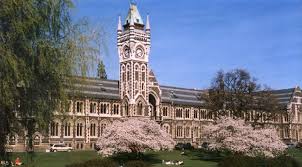
To some extent, a person will become educated to the degree that they are a part of society. Engagement with society in one regard generally predicts engagement with society in another.
This can help explain why there is a significant negative correlation between turnout rate in 2014 and having no qualifications (-0.28) and a significant positive correlation between turnout rate in 2014 and having an Honours degree (0.25) and having a doctorate (0.27).
Some might be surprised that this correlation is not even stronger, and in truth it probably should be. This is discussed at length in the article ‘Understanding New Zealand: Demographics of Education’.
One might make the assumption that, because having a higher education is correlated with a high turnout rate, and because voting National is correlated with having a high turnout rate, that having a higher education must also be correlated with voting National.
This is not an accurate assumption. There is a positive correlation between having a Bachelor’s degree and voting National in 2014, although this is a barely significant 0.25. Holding none of the three higher degrees had a positive correlation with voting National in 2014.
The weak positive correlation between being highly educated and voting National in 2014 was mirrored in the weak negative correlation between being highly educated and voting Labour in 2014. This was only significant for having an Honour’s degree and voting Labour in 2014, which was -0.28. For the other degrees it was negative but not statistically significant.
The university educated especially love to vote for the Green Party. The correlation between voting Green in 2014 and having a degree was 0.57 for a Bachelor’s, 0.75 for a Honours, 0.64 for a Master’s and 0.67 for a doctorate. These were easily the strongest positive correlations for any party.
The only party even vaguely comparable on this front was ACT. Voting ACT in 2014 had a correlation of 0.65 with having a Bachelor’s degree, which was even higher than the correlation between voting Green and having a Bachelor’s. The correlations with having one of the three higher degrees were, however, lower with voting ACT in 2014 than voting Green in 2014: 0.40 for an Honours, 0.57 for a Master’s and 0.30 for a doctorate.
These two parties were balanced by New Zealand First, voting for which had easily the strongest negative correlations with having a degree. Voting for New Zealand First in 2014 had a correlation of -0.76 with having a Bachelor’s degree, -0.72 with having an Honours degree, -0.76 with having a Master’s degree and 0.63 with having a doctorate.
The reason for this is that New Zealand First draws much of its support from pensioners and Maoris, the former having few higher degrees because of limited educational opportunity when they were young and the latter having few degrees on account of various socioeconomic disadvantages and cultural disincentives.
Voting Conservative in 2014 was not significantly correlated with having any of the degrees. In fact, all four correlations were bordering on significantly negative. This suggests that the Conservative Party targets the same kind of poorly educated, paranoid and aggressive religious fanatic that the American Republican Party does.
Although voting for the Maori Party in 2014 was significantly negatively correlated with having any degree, voting for Internet MANA was only significantly negatively correlated with having an Honours degree, whereas the correlations for the other three were, although negative, not significant.
This probably reflects the fact that Internet MANA appealed to a slightly broader cross-section of New Zealanders than the Maori Party, and hence to several demographics that are better educated than the Maori one.
This was also true of the Aotearoa Legalise Cannabis Party, voting for which in 2014 also had significant negative correlations with holding any of the four degrees. With having a Bachelor’s it was -0.46, with having an Honours degree it was -0.42, with having a Master’s degree it was -0.46, and with having a doctorate it was -0.38.
Predictably, these figures were all, for the most part, mirrored in the other direction. Namely, all the voting patterns of people with very low qualifications or none at all were the opposites of the patterns of people with high qualifications.
*
This article is an excerpt from Understanding New Zealand, by Dan McGlashan, published by VJM Publishing in the winter of 2017.



